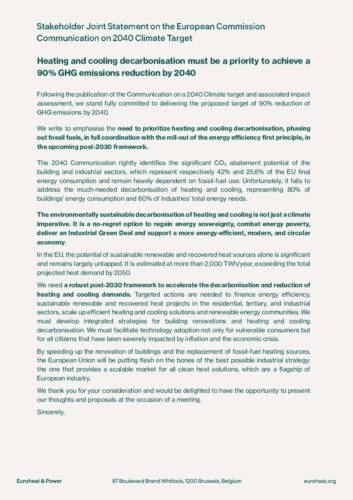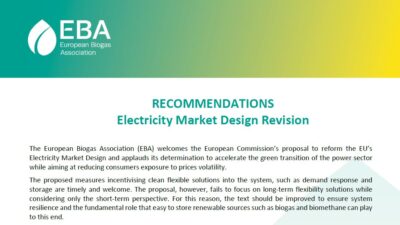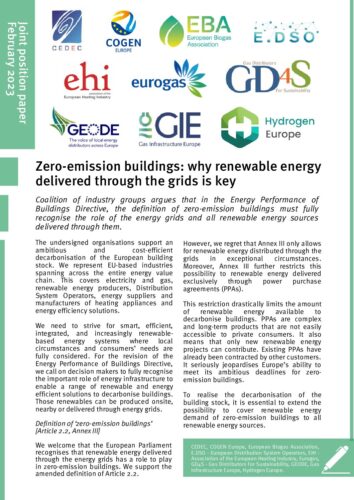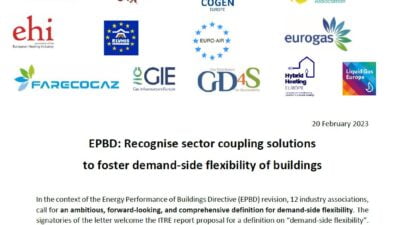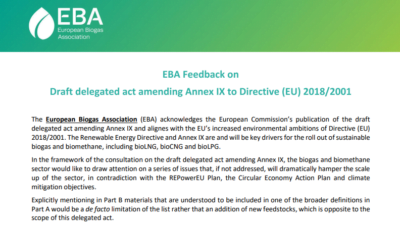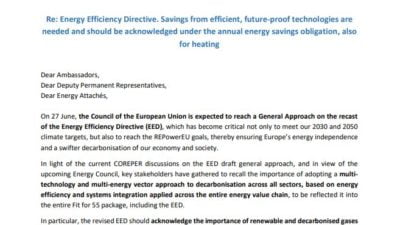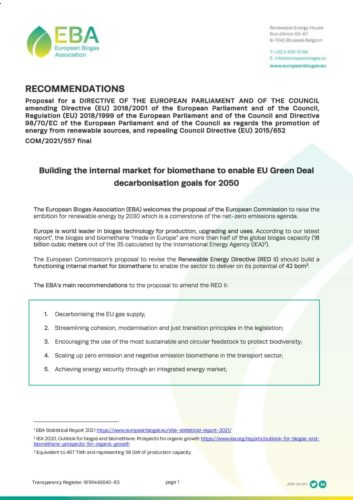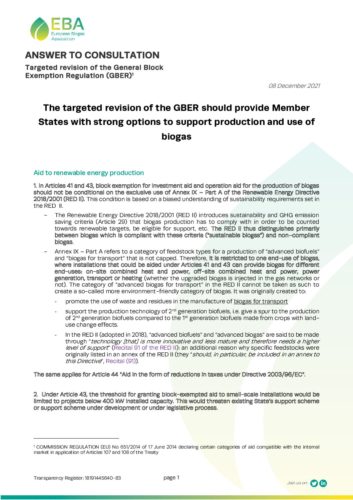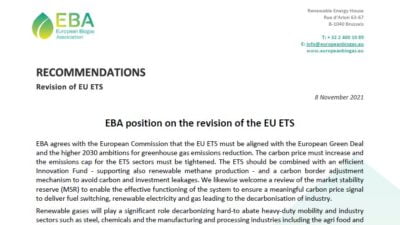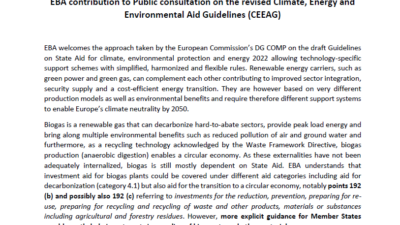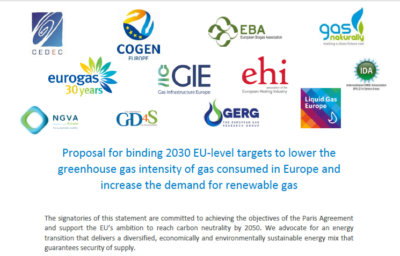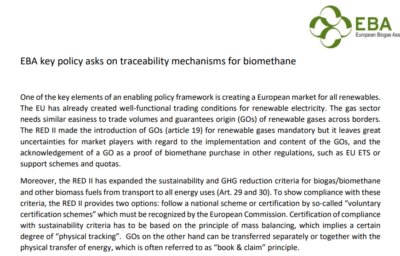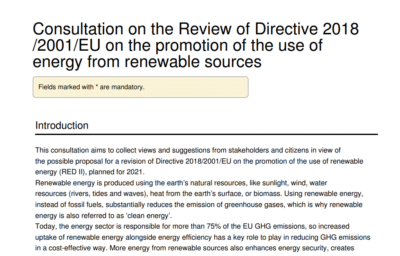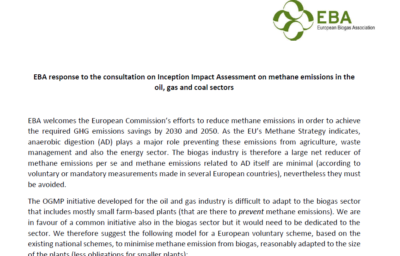Scaling-up renewable gas!
The new Renewable Energy Directive (‘RED II’) includes a legally-binding EU-wide target of 32% for renewable energy by 2030, with an upward review clause in 2023, as well as sector-specific objectives, including an annual increase of 1.3% for renewable energy in the heating sector and an end target of 14% renewables in the transport sector by 2030. The latter aims to promote the further deployment of electric mobility but it also includes a sub-target of 3.5% for advanced biofuels and biogas.
In general, the Directive is certainly a positive step towards the large-scale take up of renewable gas in the next decade. It will facilitate the access of biomethane to the natural gas grid, extend guarantees of origin from renewable electricity to renewable gas, and make the cross-border trade of biomethane easier. The new sustainability policy will restrict the production of biogas and biomethane, however, by introducing sustainability thresholds for all energy sectors. Biogas and biomethane must reach 65%-80% greenhouse gas savings relative to the fossil fuel comparators. Sustainable feedstock types are listed in Annex IX of the Directive and Annex VI determines the default emission values for different pathways. The Annexes are kept under continuous review. Biogas nevertheless remains one of the most sustainable energy sources, able to reach over 200% greenhouse gas savings when the use of agricultural manure as a feedstock means methane emissions from manure are avoided. The Directive must be transposed into national law in all EU Member States by 30 June 2021.
EBA policy recommendations on renewable energy
- Guarantees of Origin to be implemented in a harmonized way across Europe: Make virtual trading possible across borders. The traceability and the transparency are essential components of the energy transition and consumer empowerment. Biomethane production must be certificated and valorized to the customers with the proper information about all its merits.
- Heat use: make the target in RED II of increasing renewables in heating by 1.3 % binding and clarify the role of renewable methane in achieving this goal. Renewable methane can provide a cost-efficient solution to increase renewable energy in heating and tackle energy poverty.
- Financial support for the green gas transition based on the principle of ‘polluters pay’: an adequate carbon price is needed to internalise the negative externalities of local and global pollution – introduce EU-wide carbon tax; subsidies of the fossil fuels must be phased out – technology specific support schemes are crucial – benefits of biogas/biomethane are completely different (and complementary) from those of intermittent renewables but renewable gas receives less support in most parts of Europe. European financing mechanisms, for instance though EIB, should be directed to support biomethane project development.


